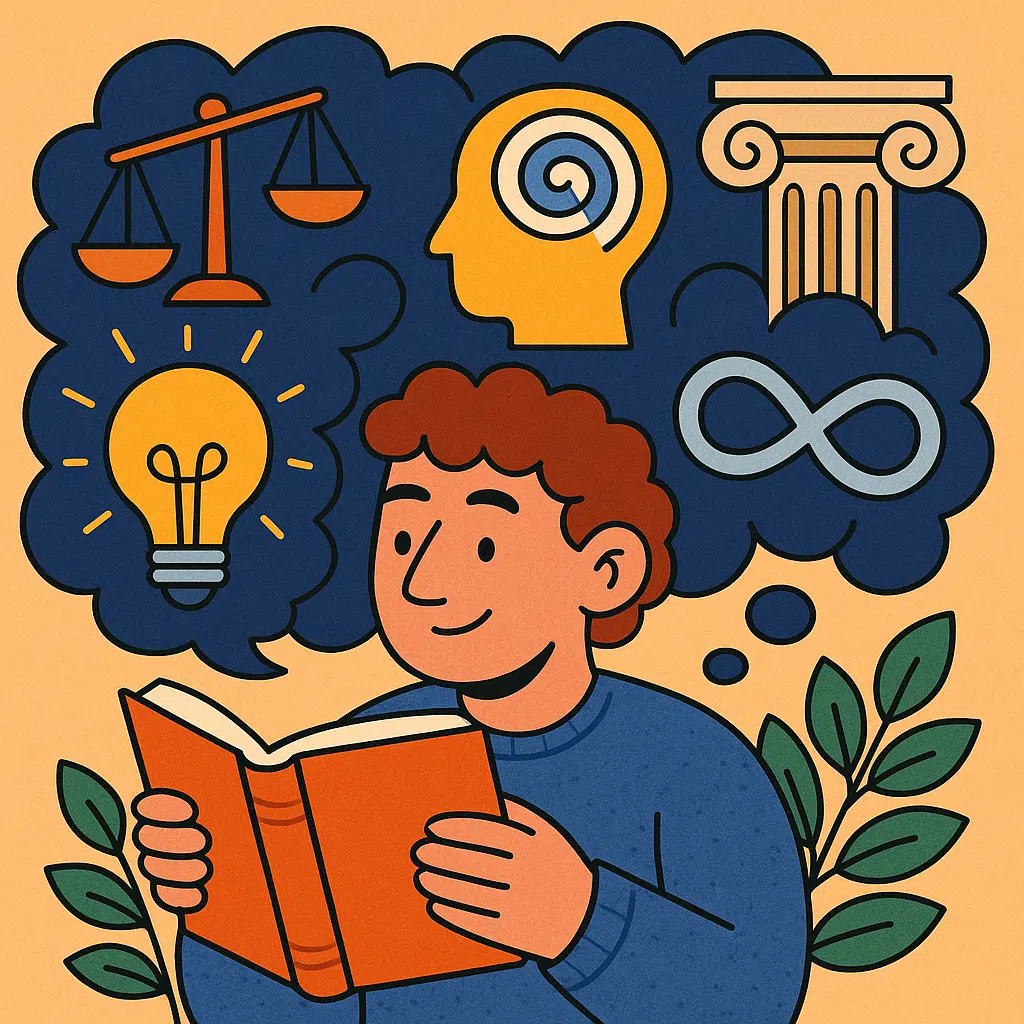When Reading Feeds Personal Philosophy
Charlotte Stone July 31, 2025
In 2025, the idea that reading feeds personal philosophy is gaining real momentum. More than a pastime, reading now functions as a tool that reshapes values, belief systems, and daily choices. This article explores recent trends, research, and how literature is transforming minds.

How Reading Feeds Personal Philosophy: The Emerging Trends
- Deep Reading Resurgence
The popularity of slow reading—or deliberate, thoughtful engagement with texts—is rising again. This trend encourages readers to pause, reflect, and truly absorb nuanced arguments, especially philosophical and literary texts. - Bibliotherapy in Mental Health
Reading-as-therapy (bibliotherapy) is being used more often by therapists and support groups, helping people process grief, anxiety, and identity questions. It’s now widely supported by research and real-world practice. - Narrative Empathy
Fiction enhances readers’ empathy and theory of mind by encouraging perspective-taking at cognitive and emotional levels. This is shaping ethical outlooks in readers of all ages. - Philosophical Reading as Active Praxis
Reading philosophy is no longer a passive academic task—it is recognized as an active and transformative experience, influencing readers’ beliefs and self‑conception.
Why 2025 Is a Moment of Transformation
Technology Meets Slow Thought
In a world saturated with fast social media and instant content, reading communities are pushing back. Movements advocating for “deep reading,” unplugged moments, and personal reflection are becoming popular, especially among students and professionals.
Therapeutic Reading Gains Traction
Therapists and coaches increasingly prescribe curated reading lists in self-help and fiction genres. This bibliotherapy trend is expanding beyond clinical settings into personal development circles.
Philosophy Goes Popular
Online platforms make philosophical essays and classic texts more accessible. People are drawn to books and articles that challenge assumptions and provoke introspection. The reading-of-philosophy-as-self-creation movement is gaining a real digital following.
Read to Reflect: Why Reading Feeds Personal Philosophy
1. Develop Critical Thinking
When you read philosophy or narrative work critically, you’re not just absorbing content—you’re evaluating your own views. As one writer puts it, reading philosophy is an act of self-creation, a way to test and refine your personal beliefs.
2. Strengthen Empathy and Moral Imagination
Fiction doesn’t just entertain—it puts you in another person’s shoes. Narrative empathy is shown to enhance understanding of others’ minds and emotions, influencing how readers view justice, compassion, and fairness.
3. Gain Emotional Resilience
Therapeutic reading exercises can help people process difficult experiences. Journaling after reading can deepen reflection, similar to structured dialogue journals used in educational settings.
4. Experience Transformation
Philosophical reading can produce sensations—astonishment, even existential shift—as part of “thinking-in-reading,” blending emotional and intellectual change.
A Practical Guide: How to Let Reading Feed Personal Philosophy
Choose the Right Materials
Break habits: sample different genres—philosophy, memoir, fiction from different cultures. Variety sparks re-evaluation of old assumptions and exposes you to new worldviews.
Include biography or transformative nonfiction to see how lived experiences shape values. Seek out voices from different time periods and cultural contexts—ancient Stoics, contemporary social justice writers, diverse philosophical traditions.
Don’t shy away from material that makes you uncomfortable. Books that challenge your existing beliefs often provide the most growth.
Read Slowly, with Intention
Dedicate uninterrupted time: aim for conscious comprehension, not speed. Philosophical reading requires dwelling with ideas, not rushing through for key points.
Annotate margins, note your emotional reactions, and identify what unsettles or invigorates your point of view. Write questions when claims seem questionable. Mark both resonant passages and defensive reactions—defensiveness often signals ideas worth examining.
Practice “conversational reading”—imagine dialoguing with the author. Ask: What evidence supports this? How does this connect to other ideas? This transforms passive reading into active engagement.
Reflect and Respond
Use brief journaling or dialogue writing to engage the text personally. Reflective writing helps translate reading into understanding about yourself.
After key readings, ask yourself: “How does this challenge, reaffirm, or alter what I believe?” Go deeper: “What assumptions was I making that this author questions?” “What would change in my daily life if I truly believed this?”
Try writing imaginary conversations between conflicting authors. These exercises help you understand practical implications of different philosophical frameworks.
Join Conversations
Book clubs—offline or online—expose you to different interpretations and challenge assumptions. Discussion reveals that your obvious passages might be controversial to others, while your struggles might seem clear elsewhere.
Engage with philosophy forums or reading communities to debate ideas. Form groups with people from different backgrounds—diverse perspectives generate richer conversations than echo chambers.
Include informal conversations with friends, family, or colleagues about the ideas you’re exploring.
Use Reading as Therapy
Try bibliotherapy: select books that address emotional or moral challenges you’re facing. Struggling with loss? Read about grief and meaning. Career transitions? Explore purpose and calling.
Discuss challenging reads with a friend or mentor. Some philosophical ideas can be destabilizing—having support helps process both intellectual content and emotional impact.
Track how themes resonate with your own life. Share your reflections and note connections between abstract philosophy and personal experience.
Real-Life Examples That Show How Reading Feeds Personal Philosophy
- A therapist-led bibliotherapy group: clients read novels dealing with grief to navigate personal healing and build narrative empathy.
- Academic reading circles engaging with philosophical texts (e.g. Paul’s Transformative Experience) that prompted participants to reconsider life choices in light of awareness of unpredictable change.
- Slow reading events in communities where participants read a short philosophical text and discuss personal reactions.
What Research Tells Us
Emotional and Cognitive Effects
Reports in Verywell Health confirm that daily reading reduces stress, improves memory, and can add years to lifespan—even short sessions of 30 minutes daily yield measurable brain benefits.
Philosophical Reading Transforms
Academic inquiry shows that reading serious texts includes affective and transformative experiences—not just comprehension—but shifts in values and worldviews.
Empathy and Theory of Mind
Multiple psychology studies demonstrate that literary fiction enhances perspective‑taking and emotional understanding more than nonfiction.
Summary: Reading as Personal Philosophy in Action
When reading feeds personal philosophy, it means more than consuming words—it means transforming how you think, feel, and live. By engaging deeply with varied texts, practicing slow and reflective reading, and translating insights through reflection or dialogue, you can shape your worldview and emotional resilience in ways that matter.
References
- Whistler, Daniel. (2022). The experience of reading philosophy. Frontiers in Psychology. frontiersin.org.
- “Reading as a Philosopher.” Philosophers’ Magazine (blog). (2020). philosophersmag.com.
- Martin‑Chang, Sandra. (2021). The Benefits of Reading for Fun for Middle and High School Students. Edutopia. edutopia.org.







